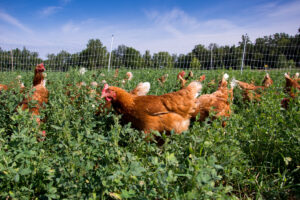| Best for | Product |
|---|---|
| Best Overall | Favorite African Folktales |
| Deepest & Most Personal | Indaba My Children: African Folktales |
| Best Novel | Children of Blood and Bone (Legacy of Orisha) [Mar 08, 2018] Adeyemi, Tomi |
| Best on East African Myth | Tales of East Africa |
| Most Condensed | Yoruba Mythology: Definitive Guide to African Orisha Gods, Goddess and Fascinating Stories |
| Best Primer | African Mythology: Gods, Heroes, Legends and Myths of Ancient Africa (Easy History) |
| Best for Teens | African Mythology A to Z |
| Best for Young Learners | Yoruba Mythology Coloring Book: The Gods and Goddesses of Yorubaland |
Africa is home to one of the most diverse mythological canons in the world. This is due to the fact that there are so many cultures, languages, and ethnic groups that live in Africa.
The term “Africans” or even “African people” cannot be used to describe groups of people other than to reference the continent that they live on. Beyond that, an incredible diversity of culture exists, and that diversity breeds a colorful variety of mythologies.
In many cases, these mythologies aren’t even rooted in the same stories or historical people groups. Remember that Africa is the birthplace of humanity, and groups probably didn’t start migrating off the continent until as early as 90,000 years ago.
Some African groups have been since long before that, with some estimates placing the San people at 100,000 to 140,000 years old.
The point is, unlike many Western mythologies which are new and intermingled, countless African mythologies are free from influence and steeped in millennia of humans to deepen their symbols and meanings—it would be impossible to put your finger down.
The following is a list of great African mythology books to help you understand a sliver of this incredibly rich system of mythologies.
 Check Amazon
Check Amazon- 720 pages.
- A compilation of African folktales, retold in prose.
- Written by an author familiar with the tales since childhood.
![Children of Blood and Bone (Legacy of Orisha) [Mar 08, 2018] Adeyemi, Tomi](https://m.media-amazon.com/images/I/51fv-aikVRL._SL500_.jpg) Check Amazon
Check Amazon- 544 pages.
- Recommended for readers ages 13 and older.
- Part of the Legacy of Orisha book trilogy.
 Check Amazon
Check Amazon- 102 pages.
- Covers the myths of ancient Africa, before civilization.
- Part of the East History series of currently 13 books, which covers eastern mythologies and history.
 Check Amazon
Check Amazon- 149 pages.
- Recommended for readers ages 12 through 17.
- Part of the Mythology A to Z series of nine books, which covers numerous mythologies around the world.
 Check Amazon
Check Amazon- 24 pages.
- A coloring book with illustrations focused on Yoruba mythology.
- 20 illustrations included.
Best Overall — Favorite African Folktales
- 240 pages.
- A collection of Africa's oldest stories.
- Edited by Nelson Mandela.
Written by Nobel Laureate for Peace, Nelson Mandela, this book is a carefully-curated selection of old African folktales.
Mandela’s hope was that future generations would read and cherish these stories, in doing so keeping them alive and a part of African culture. It includes many of the most pertinent myths from the African continent.
You’ll find creation myths, symbolic journeys, societal commentaries, underdog tales, and more, all expressed through the actions of mythological figures. This is a great book because it pieces together important myths from all corners of Africa rather than focusing on one particular area.
As one of Africa’s most influential individuals in the 20th century and a symbol of peace, Mandela is an excellent person to learn these stories from. He didn’t pen the tales included, but he served as an editor and compiled them.
Favorite African Folktales is the perfect fit for any reader looking to gain a wider appreciation for the tales and myths that underpin many African cultures. The book runs 240 pages long, is available in paperback format, and has a 4.8-star rating on Amazon with more than 250 reviews.
The Pros and Cons of Favorite African Folktales
| Pros | Cons |
|---|---|
| Includes stories from around the continent | Focuses on individual stories rather than diving deep into specific mythologies |
| Contains a variety of mythological figures including animals, spirits, gods, goddesses, and more. | Doesn’t always provide historical or cultural context to the stories |
| Recognized for its cultural and literary merits |
Deepest & Most Personal — Indaba My Children: African Folktales
- 720 pages.
- A compilation of African folktales, retold in prose.
- Written by an author familiar with the tales since childhood.
Indaba My Children: African Folktales is the type of book that brings mythology out of the textbook and into the heart. The author, Vusamazulu Credo Mutwa, is from the province of Natal in South Africa.
His grandfather was a tribal historian, charged with remembering and transmitting their culture’s oral tradition. Vusamazulu intended to do the same, and this book is in the spirit of that preservation. It details the gods, his culture’s history, its symbolism, and the deep meaning associated with his culture’s myths.
You’ll be transported back to the creation of man and walk the path forward to the point when Europeans first land on South African shores. This book is not only a personal account, but it’s also a beautiful example of the way that myth, symbolism, history, culture, and tradition can be interwoven to produce meaning.
The book is 720 pages long, available in hardcover and paperback formats, and has a 4.8-star rating on Amazon.
The Pros and Cons of Indaba My Children: African Folktales
| Pros | Cons |
|---|---|
| Uniquely personal and meaningful | 720 pages might be long for some readers |
| Includes a variety of in-depth folktales from an individual who learned them as a child | |
| Offers historical and cultural perspectives |
Best Novel — Children of Blood and Bone
- 544 pages.
- Recommended for readers ages 13 and older.
- Part of the Legacy of Orisha book trilogy.
If you’re not one for non-fiction, Children of Blood and Bone is an excellent option. Flavored with West African mythology, this work of fiction offers a fresh and extremely engaging way to gain an appreciation for mythology.
Children of Blood and Bone is the winner of the 2018 Audiobook of the year. Available on Kindle, paperback, and Audiobook, this book is sure to spark anyone’s interest in African mythology. You might also find that you fall in love with Tomi Adeyemi’s writing style and perspective and explore her other novels.
Further, the protagonist is an incredibly strong and powerful female. The book deals with some modern societal issues through the lens of West African mythology, giving the reader a fresh perspective on myth and its impact in today’s world.
The Pros and Cons of Children of Blood and Bone
| Pros | Cons |
|---|---|
| Critically acclaimed and beloved | Not as academic as other books on this list |
| “Exhilarating novel” that will hook you in | Blends fiction and historical myth, so may not always be historically accurate |
| Touches on modern issues in the context of old-world folktales | |
| Available on Audiobook read by an award-winning narrator |
Best on East African Myth — Tales of East Africa
Tales of East Africa is a selection of 22 illustrated folktales from the regions of Tanzania, Uganda, and Kenya. The compilation consists of translations from the early 1900s and these renditions stand in contrast to the modern artwork placed alongside them.
The result is an engaging, unique blend of different perspectives that come together for each story. Readers will be introduced to a variety of characters from goddesses to trickster animals using wit and charm.
This is a perfect book for anyone looking to dive right into the stories themselves rather than learning about history and context. It’s available on Kindle and in hardcover format, has a 4.7-star rating on Amazon with hundreds of reviews, and runs a total of 176 pages.
While adults can definitely enjoy this book, the reading age is listed as 8 to 12 years old.
The Pros and Cons of Tales of East Africa
| Pros | Cons |
|---|---|
| Excellent primer for young adults and teens | Limited to East African myths |
| Our only choice covering East Africa | Supportive writing may not be engaging to adults |
| Includes early translations of actual folktales | |
| Offers striking visual aids |
Most Condensed — Yoruba Mythology: Definitive Guide to African Orisha Gods, Goddesses, and Fascinating Stories
This is another book that focuses on West African Yoruba mythology. Specifically, the book dives into the idea of “orishas.”
These are immensely important spirits in the religions and mythologies of the region as well as the West African-based South and Central American cultures stemming from the African diaspora.
Orishas are divine spirits that live as human beings. Alternatively, some interpretations suggest that they’re normal human beings blessed with exceptional wisdom.
In any case, Yoruba Mythology: Definitive Guide to African Orisha Gods, Goddesses, and Fascinating Stories is an excellent resource on these figures.
The book also offers context for the Yoruba religion and how it’s evolved over time in the wake of different historical forces. It’s a quick read at just 54 pages, available on Kindle and paperback, and produced by Trident Books.
The Pros and Cons of Yoruba Mythology
| Pros | Cons |
|---|---|
| Concise yet detailed | Specific in nature; limited to a certain type of gods |
| Deeply explores the concept of “Orishas” | Might be too brief for someone wanting comprehensive information |
| A great primer on West African mythology | |
| Includes some historical context |
Best Primer — African Mythology: Captivating Myths of Gods, Goddesses, and Legendary Creatures of Africa
- 102 pages.
- Covers the myths of ancient Africa, before civilization.
- Part of the East History series of currently 13 books, which covers eastern mythologies and history.
African Mythology: Captivating Myths of Gods, Goddesses, and Legendary Creatures of Africa is a great text on some of the general themes and motifs found in African mythologies.
It’s also a good resource for understanding how these myths have spread through the world and developed over time. The book acknowledges that it’s impossible to pin down similarities across the myths of 3,000 unique cultures but still tries to find the essential trends for the reader to understand.
You’ll learn about heroes, tricksters, and much more. The book runs 3 hours long on Audiobook and is also available in paperback form with over 240 Amazon ratings averaging 4.5 stars.
The Pros and Cons of African Mythology: Captivating Myths of Gods
| Pros | Cons |
|---|---|
| Covers a range of gods from around Africa | May lack depth on some subjects |
| Gives an impression of how many African mythologies might be structured | |
| Includes key figures that stand out in African mythology | |
| A good jumping-off point for readers interested in a wide range of mythological topics |
Best for Teens — African Mythology A to Z
- 149 pages.
- Recommended for readers ages 12 through 17.
- Part of the Mythology A to Z series of nine books, which covers numerous mythologies around the world.
African Mythology A to Z is a good jumping-off point for any teenager interested in learning about African mythology. While they won’t get a full appreciation of any one subject, they’ll have a solid grasp of the scope of African mythology and how diverse it can be.
Further, the alphabetical subjects in this book will give teens the ability to find cultures or mythologies in Africa that they might be interested to learn more about. The book offers color photographs and illustrations to support the text.
You’ll find African Mythology A to Z to fall somewhere between a light textbook and a coffee table book. It’s intended for readers aged 12 to 17, runs 149 pages long, and is available on Kindle or in library binding (meaning its spine is labeled for use in a library).
The Pros and Cons of African Mythology A to Z
| Pros | Cons |
|---|---|
| Briefly covers many topics in African mythology | Misses many aspects of African mythology |
| Great reference point | |
| Covers the key figures and stories | |
| Contains supportive artwork and imagery |
Best for Young Learners — Yoruba Mythology Coloring Book: The Gods and Goddesses of Yorubaland
- 24 pages.
- A coloring book with illustrations focused on Yoruba mythology.
- 20 illustrations included.
Yorubaland is a cultural region in West Africa, encompassing Togo, Benin, and Nigeria. Yoruba Mythology Coloring Book: The Gods and Goddesses of Yorubaland details 20 of the mythological figures from that region and offers detailed information about them.
Although many of the figures in the book have changed and evolved through the centuries, the coloring book imagery is intended to help you appreciate the essence of what each figure might mean. If you’re unfamiliar with any West African mythology, this book will serve as a relaxing and enjoyable primer on the key myths of the region.
It’s a book that adults can enjoy just as much as children. It spans 24 pages, includes beautiful images, and is available on paperback only. It also has an excellent 4.6 rating on Amazon with over 200 reviews.
The Pros and Cons of Yoruba Mythology Coloring Book
| Pros | Cons |
|---|---|
| One of few coloring books on the subject of African mythology | Is limited to light information and coloring book images |
| Allows readers to create a personal meaning with gods and goddesses | Lacks depth on subjects included |
| Great for people of all ages (images can be complex enough to be enjoyable to adults) | |
| Offers some supportive text and information |
How to Choose The Right Book on African Mythology
You might not know exactly where to start with the options above. The key thing is that you select a book you trust you’ll enjoy, rather than just choosing the one that seems the most informative.
If you’re not already sure you’ll be fascinated by this subject, just take a step in the direction you’re most confident you’ll love. For many, a good first book to choose will be Children of Blood and Bone, which is number 3 on our list.
This is a popular novel that’s written in a format that many readers will already be familiar with. It’s a real “page-turner,” and it also primes you on some of the key components of African mythology, generally.
Those who tend to fixate on the actual figures in mythology might benefit from a book like Yoruba Mythology (number 5) or A to Z: African Mythology (number 7). These books go into light detail on a wide array of mythological characters and subjects.
At the end of the day, though, folktales and myths are most commonly enjoyed in their least altered forms. That’s why we selected Favorite African Folktales as our top choice.
The book curates important African folktales and is written in a way that most readers will enjoy. It’s also a collection, so you can pick and choose the stories that you want to read at your own pace.
Up Next…
- Africa
- Animals in Central African Republic
- The 6 Best Children’s Books About African Animals – Reviewed and ranked
| Best for | Product |
|---|---|
| Best Overall | Favorite African Folktales |
| Deepest & Most Personal | Indaba My Children: African Folktales |
| Best Novel | Children of Blood and Bone (Legacy of Orisha) [Mar 08, 2018] Adeyemi, Tomi |
| Best on East African Myth | Tales of East Africa |
| Most Condensed | Yoruba Mythology: Definitive Guide to African Orisha Gods, Goddess and Fascinating Stories |
| Best Primer | African Mythology: Gods, Heroes, Legends and Myths of Ancient Africa (Easy History) |
| Best for Teens | African Mythology A to Z |
| Best for Young Learners | Yoruba Mythology Coloring Book: The Gods and Goddesses of Yorubaland |
Thank you for reading! Have some feedback for us? Contact the AZ Animals editorial team.







